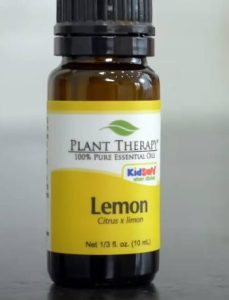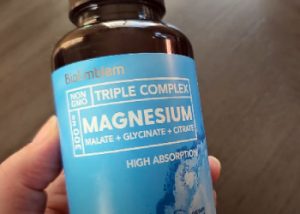When it comes to finding supplements that genuinely make a difference, it can be tough to sift through the countless options out there. One product that’s been gaining attention lately is Thesis Nootropics, a brand that claims to enhance cognitive performance.
But does it really live up to the hype? Let me take you through my experience, insights on how Thesis Nootropics compares to other brands, and why you might want to consider—or avoid—this product.
My Journey With Thesis Nootropics
If you’re like me, you’ve probably heard a lot of buzz around nootropics—supplements designed to improve cognitive function. After researching and reading various reviews, I decided to give Thesis Nootropics a try.
Their tailored approach, which promises to match specific formulas to your unique needs, really caught my eye. So, I took the plunge and began my journey to see if Thesis could help me improve my focus, creativity, and overall mental clarity.
- The Beginning: Customization and the First Step
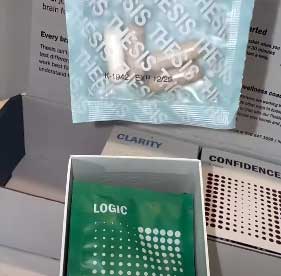
One of the aspects that stood out to me right away was the customized process Thesis uses.
The journey starts with a personalized quiz on their website.
It’s designed to understand your cognitive goals, lifestyle habits, and even your energy levels throughout the day.
As someone who often juggles work, writing, and personal tasks, I needed something that would help me stay focused during those hectic days without overwhelming me with jittery energy.
After completing the quiz, Thesis recommended a blend called Clarity, which they said would help sharpen my focus and reduce mental fatigue. Along with that, they sent the Focus blend for days when I needed extra concentration.
- The First Week: Adjusting Expectations
I was pretty excited to get started, but I went into the experience with realistic expectations. I’ve tried various supplements before, and I know that most of them don’t produce results overnight.
The first week was all about getting into a routine. I took the Clarity blend each morning with breakfast, as directed, and made sure to stay consistent.
To be honest, the first few days didn’t feel all that different. I wondered if maybe my body was still adjusting or if it would take longer to feel any noticeable effects.
By midweek, I started to notice small improvements—my mind didn’t wander as much during meetings, and I was able to get through tasks with a little more ease. Nothing drastic yet, but it was enough to keep me going.
- The Second Week: Feeling the Shift
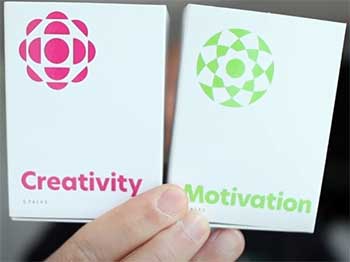
By the second week, things started to shift more noticeably. That’s when I felt the first real surge of mental clarity.
I remember sitting down to write one morning, and instead of my usual routine of procrastinating and finding distractions, I found myself diving straight into my work (without using the word “dive”!).
My focus was sharper, and I felt more “in the zone” than I had in a while.
The Focus blend, in particular, worked wonders on days when I had big projects or long stretches of work ahead. I used it selectively, usually when I needed to stay on task for extended periods, and I noticed that my productivity levels were higher. The blend seemed to cut through the mental fog that sometimes slows me down in the afternoon.
- A Balancing Act: Managing Side Effects
However, the experience wasn’t without its hiccups. While Focus worked well for me, the Energy blend wasn’t quite as smooth. It contains a moderate amount of caffeine, and since I’m somewhat sensitive to stimulants, there were days when I felt a bit jittery after taking it.
On those days, my hands were slightly shaky, and I felt more restless than energized. I adjusted my routine, switching to decaf coffee on the days I took Energy, which helped tone down the jitteriness.
It’s worth noting that everyone’s body reacts differently to nootropics, and this was an important reminder for me. Even with the personalization Thesis offers, your experience may vary, so it’s essential to pay attention to how your body responds and tweak your routine as needed.
- Weeks Three and Four: Settling into a Routine
As I progressed into the third and fourth weeks, I found that Thesis Nootropics fit seamlessly into my daily routine. At this point, the effects were much more consistent. I was no longer wondering if the blends were working—they clearly were.
My focus was more sustained throughout the day, particularly when using Focus, and my ability to tackle creative tasks had improved with the Clarity blend.
One unexpected benefit I noticed was a slight improvement in my mood. I hadn’t considered that the blends could help with overall mental well-being, but on days when I felt especially productive, I found myself feeling more positive and motivated. Perhaps it was the mental clarity, or maybe just the satisfaction of getting more done, but either way, it was a welcome bonus.
- What I Would Have Done Differently
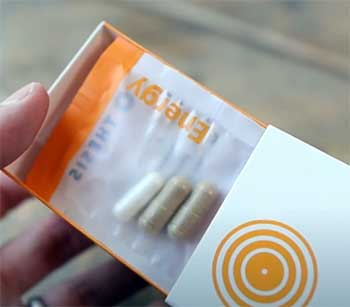
Looking back, one thing I would have done differently is cycling the blends earlier.
I didn’t start cycling until after about two months of use, which in hindsight, I think might have led to a slight decrease in effectiveness for a few days here and there.
Once I started taking breaks from the nootropics—using them for five days and then taking two days off—I felt a renewed impact when I resumed.
This simple cycling approach kept the effects fresh and prevented my body from getting too used to the daily dose.
- The Long-Term Benefits
After a few months, Thesis Nootropics became a staple in my routine. I wasn’t relying on them every day—sometimes I’d skip a dose or take a different blend based on what I needed—but overall, I found that my mental clarity and productivity were consistently better than before.
When I started using Thesis, I was hoping to find a solution to my scattered focus and procrastination tendencies, and it largely delivered on that front.
However, the long-term benefits extended beyond focus. I felt more in control of my energy levels throughout the day and was better able to switch gears between creative work and tasks that required analytical thinking.
The blends didn’t just give me a short-term boost—they supported my overall cognitive function in a way that became increasingly noticeable over time.
Pros of Thesis Nootropics
So, what are the main benefits I’ve found after using Thesis for a few months?
- Tailored Formulas: Unlike generic nootropic supplements, Thesis offers a highly customizable experience. You’re not just popping a one-size-fits-all pill. The quiz helps direct you to a formula that matches your specific needs, whether that’s focus, creativity, or something else. This is a huge plus in my book because no two brains are alike.
- Noticeable Cognitive Enhancement: By the second week, I began noticing significant improvements in my focus and mental clarity, especially during long working hours. The Focus blend was particularly impressive, helping me tackle projects with a sense of sharpness that I hadn’t felt in years.
- Subscription Convenience: Once you’ve figured out your ideal formula, Thesis offers a subscription service that makes keeping up with your regimen easier. I find this helpful because I don’t have to worry about running out or forgetting to reorder.
- Transparent Ingredient List: I’m always wary of supplements that are unclear about what’s inside. Thesis lists all their ingredients and their dosages clearly on the packaging and website, which allowed me to do my own research. The blends include known nootropics like Rhodiola Rosea, L-Theanine, and caffeine, all of which have been studied for their effects on cognitive performance.
Cons of Thesis Nootropics
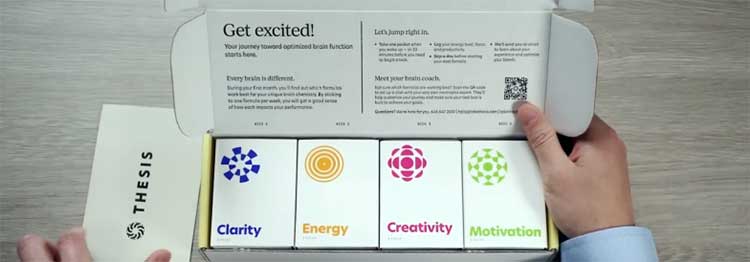
While Thesis has plenty of upsides, it’s not without its downsides. Here are some things I wish I had known before starting:
- Price: One of the first things you’ll notice about Thesis Nootropics is the price tag. It’s not cheap—each bottle can cost upwards of $120 a month if you’re not subscribed. While I do think you’re getting a premium product, this could be a deal-breaker for those on a tighter budget.
- Effects May Vary: Just like any supplement, Thesis Nootropics works differently for everyone. While I experienced noticeable improvements in my focus and energy levels, others may not feel the same way. I did notice that when I took the Energy formula, there were a couple of days where I felt jittery, probably due to the caffeine content. If you’re sensitive to stimulants, this is something to keep in mind.
- Takes Time to Work: If you’re expecting immediate results, you may be disappointed. Thesis takes time to show its full effects, and some users might not see the benefits until weeks into the regimen. It requires some patience.
Tips: How To Get The Most Out of Thesis Nootropics?
If you’re going to commit to a nootropic regimen like Thesis, there are a few maintenance tips to keep in mind to maximize your results:
- Stick To A Routine: Like most supplements, consistency is key. I found that taking Thesis at the same time each day helped me track whether it was actually working. Skipping days or taking it sporadically may lead to uneven results.
- Pair with a Healthy Lifestyle: Nootropics aren’t a magic bullet. They work best when paired with a healthy diet, regular exercise, and proper sleep. I found that the more attention I paid to these aspects of my life, the more effective Thesis seemed to be.
- Cycle Your Usage: After a few months, I started cycling my Thesis usage—taking breaks every few weeks. This helps prevent tolerance build-up and ensures that I continue to feel the full effects.
Comparison With Other Brands: How Thesis Stacks Up?
When considering nootropics, it’s essential to compare options to make sure you’re choosing the right one for your specific needs. Having tried a few other well-known brands in the nootropic space, I found that Thesis stood out for several reasons, but it also has its limitations when compared to competitors.
- Mind Lab Pro Vs. Thesis
Mind Lab Pro is often the go-to for many first-time nootropic users because it offers an all-in-one formula designed for universal cognitive enhancement. In contrast, Thesis provides a much more tailored experience.
While Mind Lab Pro is solid in terms of offering broad cognitive support—like memory, focus, and clarity—it lacks the personalization Thesis brings to the table. However, if you’re looking for something more affordable and less complex, Mind Lab Pro could be a simpler, lower-cost alternative to Thesis.
- Qualia Mind Vs. Thesis
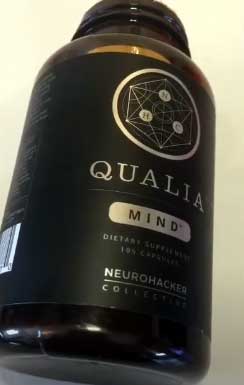
Qualia Mind offers an extensive list of ingredients, and it’s one of the most comprehensive nootropic stacks on the market.
In my experience, it did offer a significant cognitive boost, but it also had more pronounced side effects, such as jitteriness and occasional headaches, likely due to the sheer volume of ingredients.
On the other hand, Thesis felt more targeted and gentler on my system, particularly because I could adjust the blend to fit my needs.
Qualia Mind might appeal to someone looking for a powerful, one-size-fits-all nootropic, but Thesis excels if you prefer a more customized and nuanced approach.
- Alpha Brain Vs. Thesis
Alpha Brain is one of the more budget-friendly options and has a large following, especially for those new to nootropics. It’s simple, effective for some, and much less expensive than Thesis.
That being said, after trying both, I found that Alpha Brain didn’t offer the same level of targeted focus or mental clarity that I experienced with Thesis. If price is a big factor, Alpha Brain is a good starting point, but if you’re after a more refined, personalized approach, Thesis offers a richer experience.
Frequently Asked Questions (FAQ)
From my experience, Thesis Nootropics is a solid choice if you’re looking for a tailored cognitive enhancement. The fact that they offer multiple blends to target specific areas, like focus or creativity, sets them apart from generic one-size-fits-all nootropics. That said, it’s not cheap, and results can vary, so it’s important to manage your expectations.
For me, the side effects were minimal. On days when I took the Energy blend, I did feel slightly jittery, likely due to the caffeine. However, this effect wore off as my body adjusted. Other users might experience different reactions, especially if they’re sensitive to stimulants like caffeine or adaptogens like Rhodiola Rosea.
The biggest downside of nootropics is that they don’t work the same for everyone, and the effects aren’t always immediate. You may also build up a tolerance over time, requiring you to cycle your usage. Additionally, high-quality nootropics like Thesis can be expensive, which may not fit into everyone’s budget.
In my experience, Thesis Nootropics does work, but it’s important to note that nootropic supplements are not miracle pills. They can enhance cognitive function, but they are most effective when paired with other healthy habits like good sleep, a balanced diet, and regular exercise. Results will also vary based on your body’s unique chemistry.
Conclusion: Should You Buy Thesis Nootropics?
So, is Thesis worth your money?
If you’re serious about enhancing your cognitive performance and don’t mind investing in a high-quality, personalized supplement, then Thesis Nootropics is certainly worth considering. Its tailored approach, transparent ingredients, and noticeable effects make it a standout choice in the nootropic market.
That said, if you’re on a tight budget or expecting immediate, life-changing results, you might want to explore other options first. Remember, nootropics like Thesis work best when paired with a healthy lifestyle, so don’t expect miracles without putting in the effort elsewhere.
If you’ve made up your mind and want to give Thesis a try, I recommend purchasing it directly from their website. Their subscription service also helps reduce the cost and ensures you won’t run out mid-regimen. Just be patient—sometimes the best results take time to manifest!


